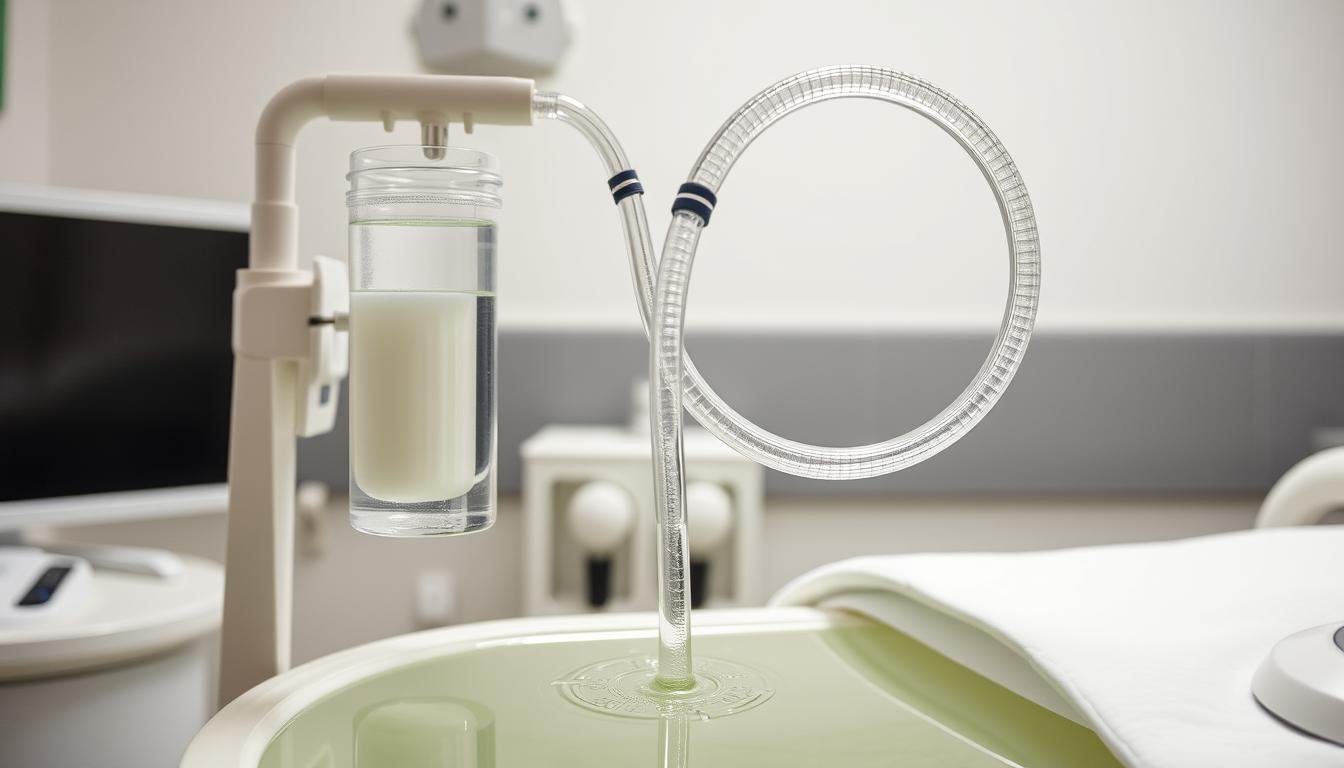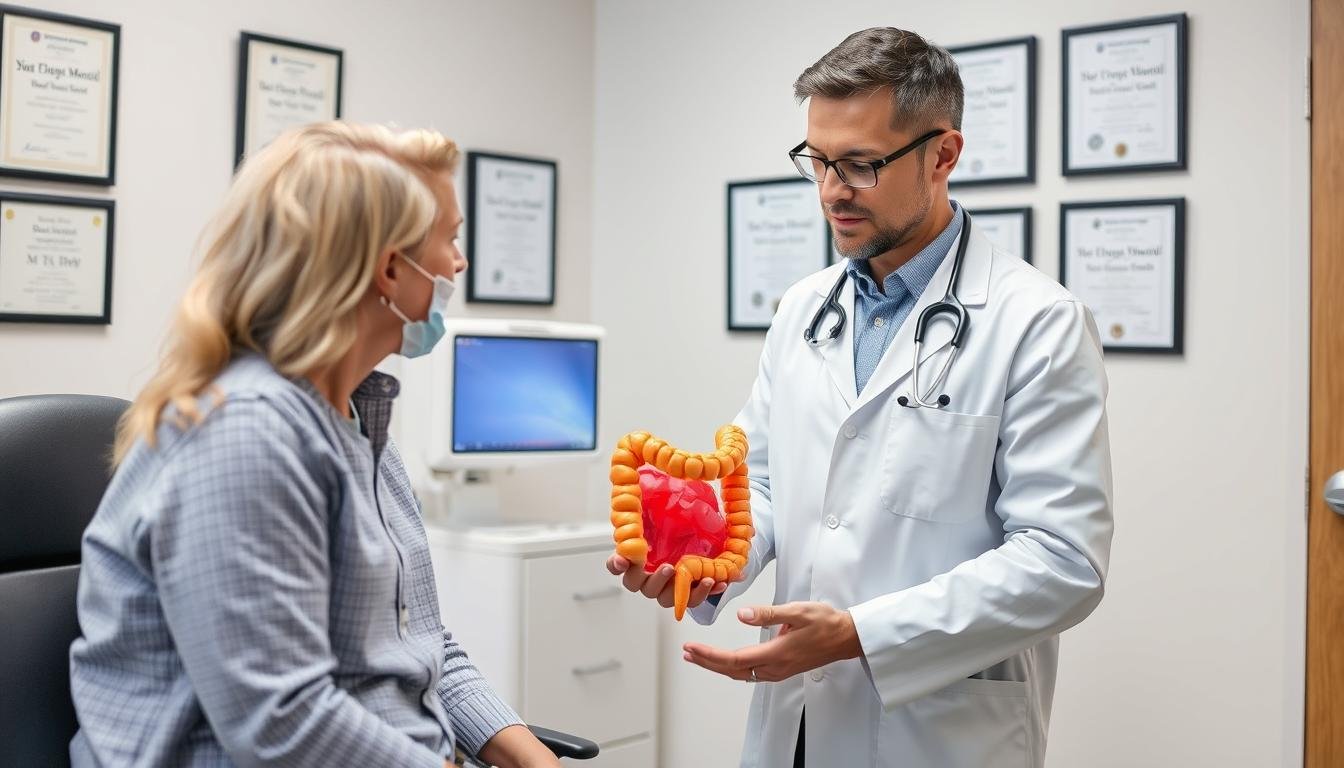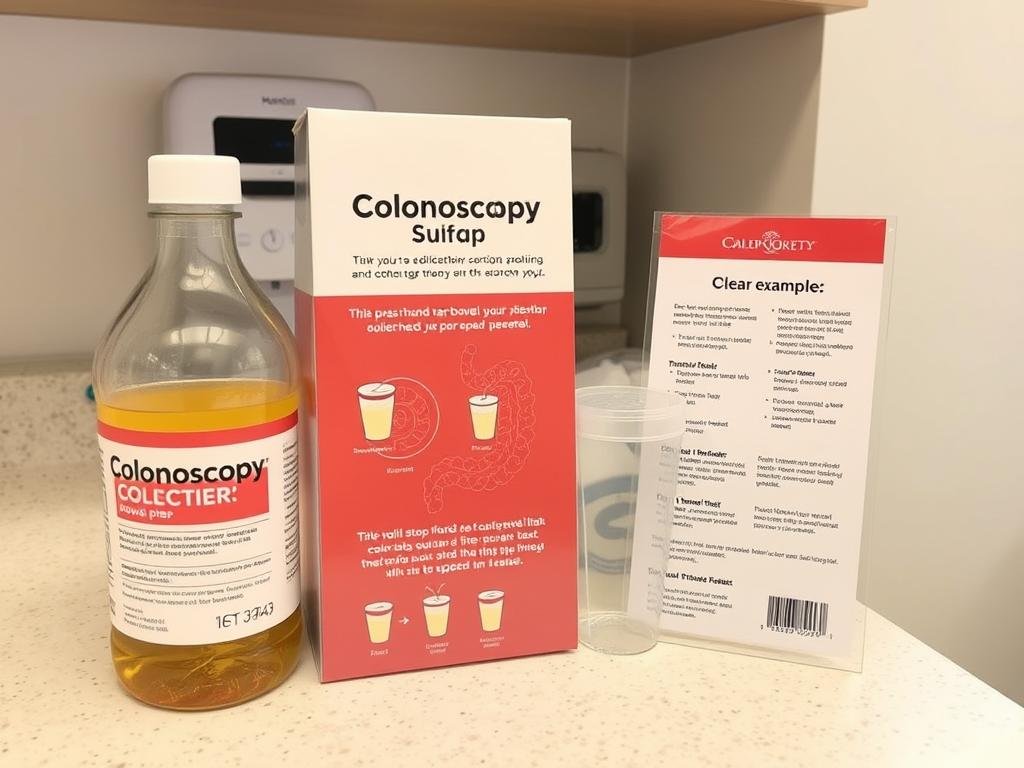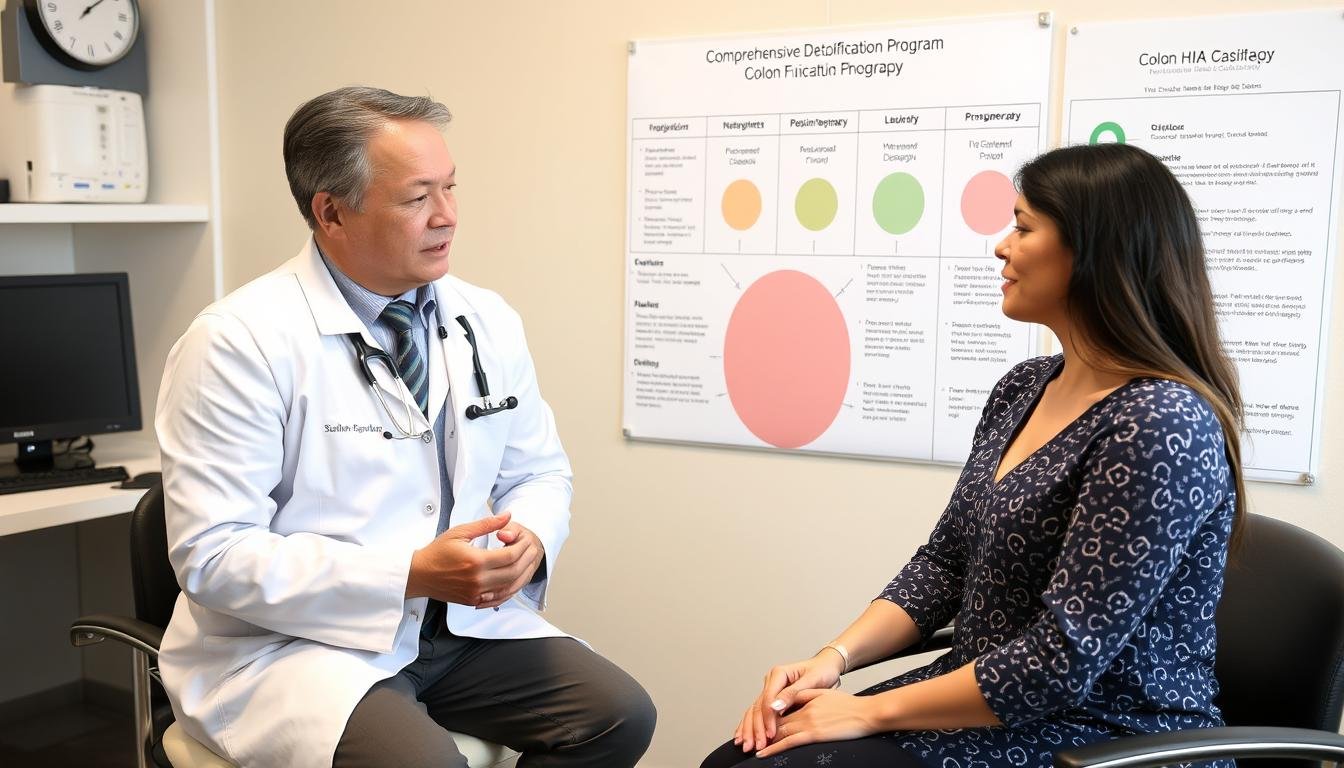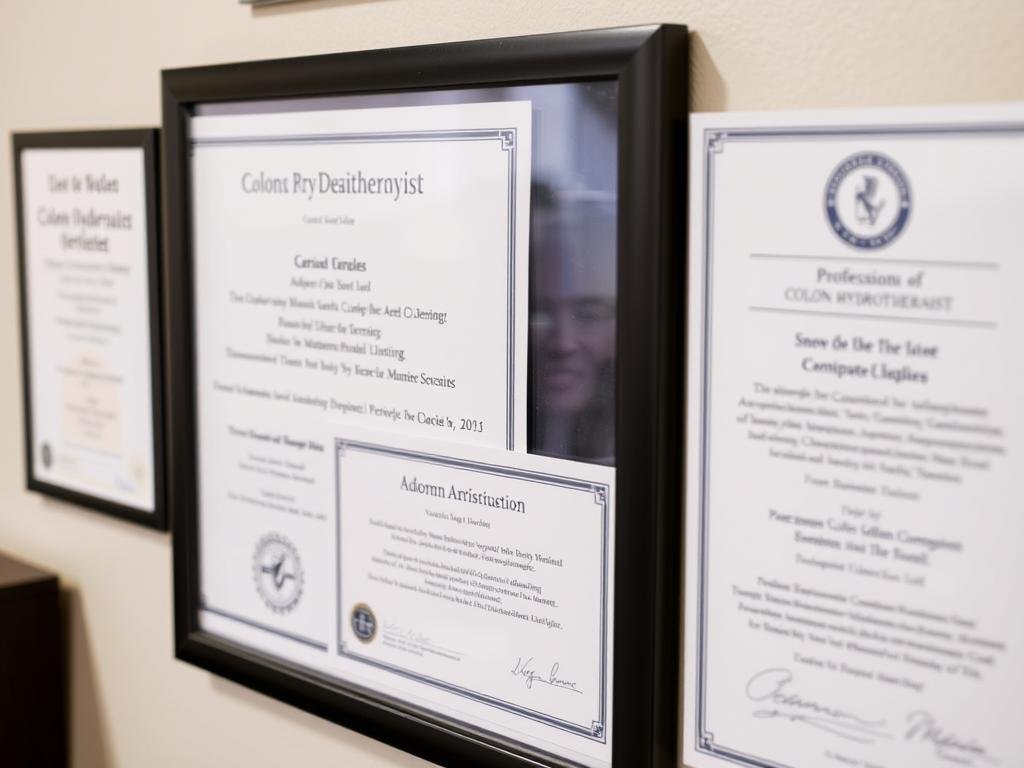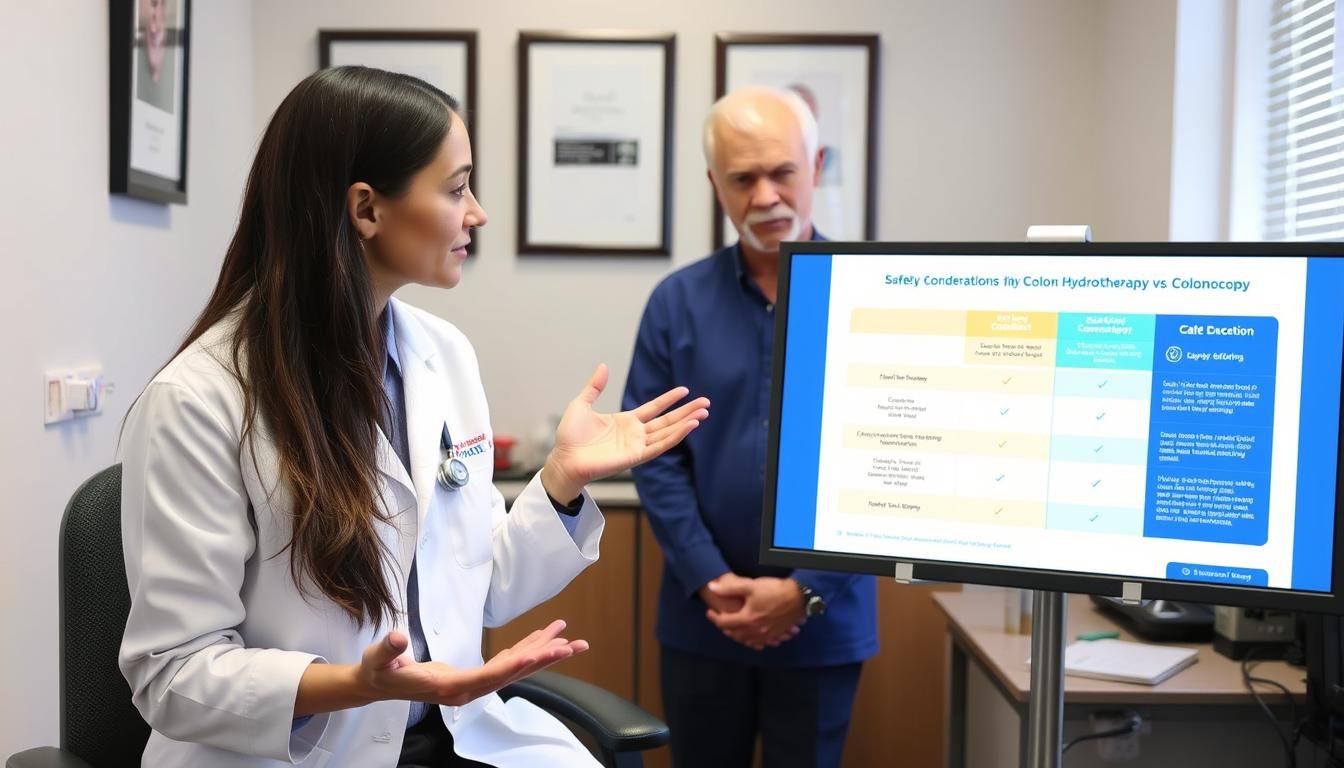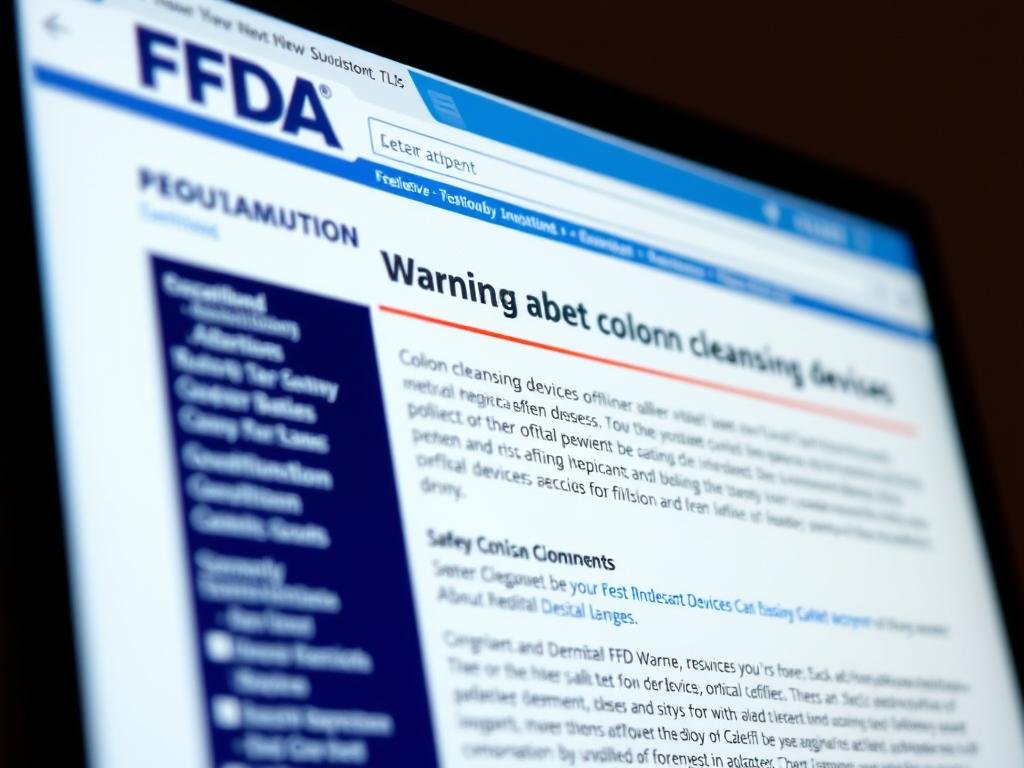Understanding the differences between ការព្យាបាលដោយប្រើទឹកប្រម្សរាពូមិន and colonoscopy is essential for making informed decisions about your digestive health. While both procedures involve the colon, they serve different purposes and come with distinct considerations. This comprehensive guide explores both procedures in detail, helping you understand when each might be appropriate and what to expect.Understanding Colon Hydrotherapy
Colon hydrotherapy, also known as colonic irrigation or colonic cleansing, has roots dating back thousands of years. Ancient Egyptians reportedly practiced early forms of colon cleansing as far back as 1500 BCE. In more recent history, the first European colon hydrotherapy center was established in 1829 by Vincent Priessnitz in what is now the Czech Republic.
The procedure gained popularity in the United Kingdom during the 1840s and was introduced to the United States in the late 1800s by Dr. Elmer Lee. Today, modern colon hydrotherapy is practiced at specialized wellness centers and alternative health clinics around the world.
Colon Hydrotherapy Procedure Details
During a colon hydrotherapy session, you’ll typically lie on a treatment table while a trained practitioner inserts a speculum into your rectum. This speculum connects to two tubes – one that introduces filtered water into the colon and another that removes waste material.
Equipment Used
- Specialized hydrotherapy machine
- Disposable speculum and tubing
- Filtered or purified water
- Sometimes herbal infusions or additives
Session Details
- Duration: 45-60 minutes per session
- Water temperature: Controlled and comfortable
- Water volume: Up to 16 gallons during treatment
- Recommended frequency: Varies by practitioner
The practitioner will control the flow of water, filling the colon until you feel pressure, then releasing it to flush out waste. This process is repeated several times during a session. Some practitioners may also perform gentle abdominal massage to help release waste material.
Claimed Benefits of Colon Hydrotherapy
Proponents of colon hydrotherapy claim numerous benefits, though it’s important to note that many of these claims lack substantial scientific evidence. Some commonly cited benefits include:
ទទួលបានអត្ថប្រយោជន៍
- ការយកចេញនៃកាកសំណល់និងជាតិពុលបង្គរ
- Relief from constipation and bloating
- Improved digestive function
- Enhanced energy levels
- Support for weight management
- Potential improvement of IBS symptoms
Medical Concerns
- Lack of scientific evidence for many claims
- Risk of disrupting normal gut flora
- Potential for electrolyte imbalance
- Risk of bowel perforation
- Not FDA-approved for most claimed benefits
- May worsen certain digestive conditions
The theory behind these claimed benefits is based on the concept of “ការប្រើសំណងនេះ” – the idea that waste material can accumulate in the colon and release toxins into the body. However, modern medical science has largely debunked this theory, as the body has its own effective detoxification systems primarily through the liver and kidneys.
What is a Colonoscopy?
A colonoscopy is a medical diagnostic procedure that allows a doctor to examine the entire inner lining of the large intestine (colon) and rectum. Unlike colon hydrotherapy, which is primarily offered as an alternative wellness treatment, colonoscopy is a standard medical procedure performed by licensed gastroenterologists or colorectal surgeons.
Medical Purpose and Applications
Colonoscopy serves several important medical purposes:
Diagnostic Uses
- Screening for colorectal cancer
- Investigating causes of abdominal pain
- Evaluating unexplained changes in bowel habits
- Identifying sources of gastrointestinal bleeding
- Diagnosing inflammatory bowel diseases
Therapeutic Uses
- Removing polyps before they become cancerous
- Taking tissue samples (biopsies) for testing
- Controlling bleeding from lesions
- Dilating narrowed areas (strictures)
- Removing foreign objects
Colonoscopy Preparation and Procedure
Preparation for a colonoscopy typically begins 1-2 days before the procedure and involves:
- Following a clear liquid diet for 24-48 hours before the procedure
- Taking prescribed bowel preparation solution to completely empty the colon
- Temporarily adjusting certain medications as directed by your doctor
- Arranging for someone to drive you home after the procedure
During the colonoscopy procedure:
- You’ll receive sedation to keep you comfortable
- The doctor inserts a colonoscope (a flexible tube with a camera) through the rectum
- The colonoscope is advanced through the entire length of the colon
- The doctor examines the colon lining for abnormalities
- If necessary, tools can be passed through the colonoscope to take biopsies or remove polyps
- The procedure typically takes 30-60 minutes
Key Differences: Colon Hydrotherapy vs. Colonoscopy
| Aspect | ការព្យាបាលដោយប្រើទឹកប្រម្សរាពូមិន | Colonoscopy |
| Primary Purpose | Alternative wellness therapy | Medical diagnostic and therapeutic procedure |
| Regulatory Status | Not FDA-approved for most claimed benefits | Standard medical procedure |
| Provider | Colon hydrotherapist (certification varies) | Licensed physician (gastroenterologist or surgeon) |
| Visualization | No direct visualization of colon interior | Complete visual examination of entire colon |
| Sedation | None required | Typically performed under sedation |
| Risk Level | Potential for serious complications | Low risk when performed by qualified physician |
| Cost Considerations | $60-200 per session, typically not covered by insurance | $1,000-3,000, often covered by insurance for screening |
| Scientific Evidence | Limited scientific support for claimed benefits | Strong evidence for effectiveness in cancer screening |
When to Consider Colon Hydrotherapy
While medical evidence for colon hydrotherapy is limited, some individuals may consider it in specific circumstances:
Potential Use Cases
- As complementary preparation before certain medical procedures (with physician approval)
- For temporary relief of occasional constipation (though other methods are often recommended first)
- As part of a supervised integrative health approach for certain digestive issues
សំខាន់ៈ Always consult with a qualified healthcare provider before undergoing colon hydrotherapy, especially if you have any medical conditions.
Contraindications
ការព្យាបាលដោយប្រើជាតិអ៊ីដ្រូសែនពោះគឺមិនសមស្របសម្រាប់មនុស្សគ្រប់គ្នាទេ។ អ្នកគួរតែចៀសវាងបែបបទនេះប្រសិនបើអ្នកមាន:
- Recent abdominal or colorectal surgery
- Active inflammatory bowel disease (Crohn’s, ulcerative colitis)
- diverticulitis
- ជំងឺឬសដូងបាតឬការប្រេះរន្ធគូថ
- Kidney or heart disease
- ជំងឺឬសដូងបាតធ្ងន់ធ្ងរ
- Intestinal perforation
- Abdominal hernia
- មានក៍ផ
Practitioner Qualifications
If you do decide to pursue colon hydrotherapy, it’s essential to choose a qualified practitioner:
- Look for certification from recognized organizations like I-ACT (International Association for Colon Hydrotherapy)
- Verify they use FDA-registered equipment with disposable components
- Ensure they perform a thorough health assessment before treatment
- Confirm they maintain proper sanitation protocols
- Check that they have experience and positive client reviews
When You Need a Colonoscopy
Unlike colon hydrotherapy, colonoscopy is a medically necessary procedure in many circumstances. Understanding when you need this procedure is important for maintaining digestive health and preventing serious conditions like colorectal cancer.
Screening Guidelines
Current medical guidelines recommend colonoscopy screening for:
- Adults aged 45-75 for routine colorectal cancer screening
- Earlier screening for those with family history of colorectal cancer or polyps
- Individuals with genetic syndromes that increase cancer risk
- Follow-up screening based on findings from previous colonoscopies
Symptom-Based Requirements
Your doctor may recommend a colonoscopy if you experience:
- Unexplained changes in bowel habits
- Blood in stool or rectal bleeding
- Persistent abdominal pain
- Unexplained weight loss
- Iron deficiency anemia
- Chronic diarrhea
Follow-Up Protocols
After a colonoscopy, follow-up recommendations depend on the findings:
- Normal results: Repeat screening in 10 years for average-risk individuals
- Small polyps removed: Follow-up in 3-5 years
- Large or numerous polyps: Follow-up in 1-3 years
- Inflammatory bowel disease: Follow-up every 1-2 years
- Cancer detection: Treatment planning and more frequent surveillance
Medical Guidance: Always follow your doctor’s specific recommendations for colonoscopy timing and frequency, as individual factors may affect your optimal screening schedule.
Safety Comparison
When considering any procedure involving the colon, safety should be a primary concern. Here’s how colon hydrotherapy and colonoscopy compare in terms of risks and safety profiles:
Documented Risks of Colon Hydrotherapy
Colon hydrotherapy carries several potential risks that should be carefully considered:
- Perforation of the bowel (a medical emergency)
- Electrolyte imbalances due to water absorption
- ការរំខាននៃបាក់តេរីពហុ
- ការឆ្លងពីឧបករណ៍ក្រៀវមិនត្រឹមត្រូវ
- ការខះជាតិទឹក
- Worsening of certain conditions like hemorrhoids
- Potential for kidney failure in susceptible individuals
Colonoscopy Complication Rates
While colonoscopy is generally considered safe, it does carry some risks:
- Perforation: Occurs in approximately 1 in 1,000 procedures
- Major bleeding: Occurs in approximately 1 in 1,000 procedures
- Infection: Rare when proper protocols are followed
- Adverse reaction to sedation: Uncommon but possible
- Post-procedure discomfort: Common but typically mild
FDA and Medical Position Statements
The FDA and major medical organizations have issued statements regarding these procedures:
“The FDA has not approved any devices for routine colon cleansing to promote general well-being. Colon irrigation systems are Class II medical devices when intended for medically indicated colon cleansing, such as before radiological or endoscopic examinations.”
— U.S. Food and Drug Administration
Major medical organizations, including the American College of Gastroenterology and the American Medical Association, do not recommend colon hydrotherapy for general health maintenance or detoxification. They emphasize that the body’s natural processes, primarily through the liver and kidneys, effectively remove waste and toxins.
In contrast, colonoscopy is widely endorsed by medical organizations as an essential screening tool for colorectal cancer prevention and early detection.
សំណួរដែលបានសួរជាញឹកញាប់អំពីការព្យាបាលដោយប្រើទឹកប្រសាទពោះវៀនធេង
Is colon hydrotherapy the same as an enema?
No, they differ significantly. An enema typically uses a small amount of fluid (1-2 quarts) to cleanse only the rectum and lower colon. Colon hydrotherapy uses much more water (up to 16 gallons) and aims to cleanse the entire colon. Enemas can be self-administered at home, while colon hydrotherapy requires specialized equipment and a trained practitioner.
How many colon hydrotherapy sessions are recommended?
Practitioners often recommend an initial series of 3-6 sessions, spaced a few days to a week apart. However, there’s no scientific evidence supporting any specific frequency. Medical doctors generally do not recommend colon hydrotherapy as a routine practice due to potential risks and limited evidence of benefits.
Can colon hydrotherapy help with weight loss?
While some people report temporary weight loss after colon hydrotherapy, this is primarily due to the removal of water and waste material, not fat loss. Any weight lost is typically regained as you eat and drink normally. There is no scientific evidence that colon hydrotherapy contributes to sustainable weight loss.
Can colon hydrotherapy replace a colonoscopy?
No, colon hydrotherapy cannot replace a colonoscopy. Colonoscopy allows direct visualization of the colon interior and can detect polyps, cancer, and other abnormalities. Colon hydrotherapy does not provide any diagnostic information and cannot detect or prevent colorectal cancer.
What are alternatives to colon hydrotherapy for digestive health?
Healthier alternatives for maintaining digestive health include: increasing dietary fiber through fruits, vegetables, and whole grains; staying well-hydrated; engaging in regular physical activity; managing stress; and taking probiotics when appropriate. If you’re experiencing digestive issues, consult with a healthcare provider for evidence-based recommendations.
Making an Informed Decision
When considering options for colon health, it’s important to distinguish between evidence-based medical procedures like colonoscopy and alternative approaches like colon hydrotherapy. While colonoscopy is a proven diagnostic and preventive tool, colon hydrotherapy lacks substantial scientific evidence for many of its claimed benefits.
The best approach to digestive health combines healthy lifestyle choices with appropriate medical screening. Regular exercise, a fiber-rich diet, adequate hydration, and following recommended colonoscopy screening guidelines provide a solid foundation for colon health.
If you’re experiencing digestive issues or considering any colon-related procedure, consult with a qualified healthcare provider who can offer personalized guidance based on your specific health needs and medical history.
Speak With a Digestive Health Specialist
Have questions about your digestive health options? Our specialists can help you understand the best approach for your unique situation.
កំណត់ពេលពិគ្រោះយោបល់

